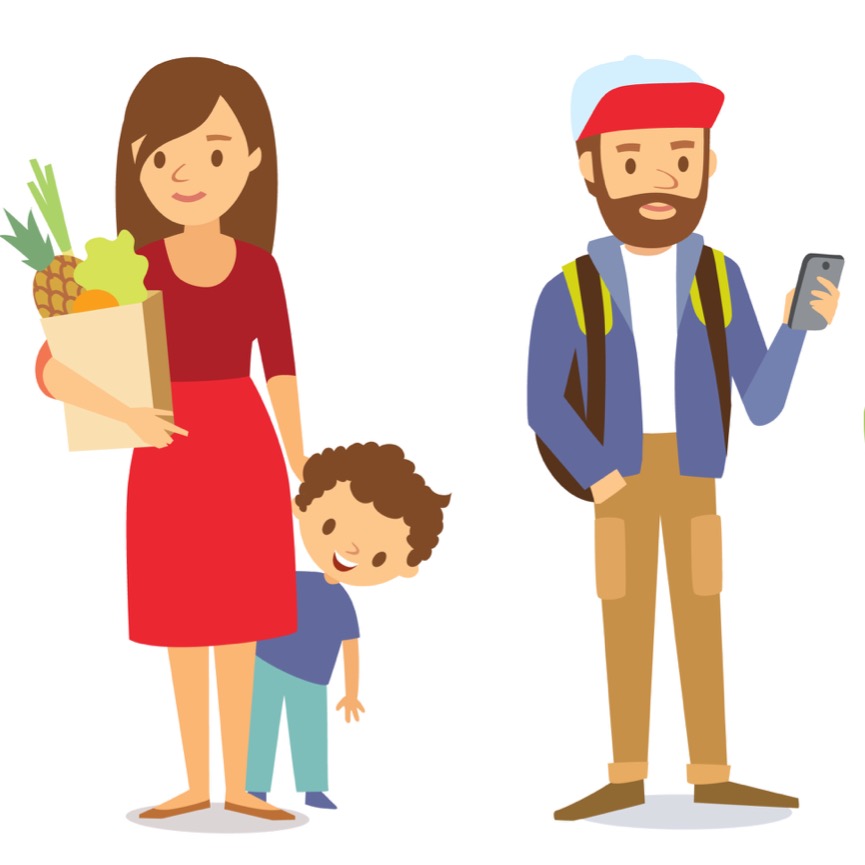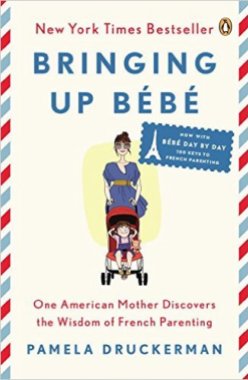Note: Dermatology-free post! Ever since I downloaded Amazon’s Audible, an audiobook app for your iPhone and other devices, I have been a “reading” machine! It probably helps that my clinical load is much less for the last month, freeing up space for some other things.
One of my majors in college was anthropology, so I really love anything that analyzes why we live the way we do. In the last month, I have “listened” to the following three books that have shaped my worldview more than I expected: Pamela Druckerman’s Bringing Up Bebé (for the second time), Michael Pollan’s In Defense of Food, and Chris Bailey’s The Productivity Project. I have to give credit to both my husband Brian Dosal, and my brother-in-law Eric Dosal for the recommendations for the last two books.
Here is a quick summary of what I have learned:
French babies are well-behaved, American babies aren’t. Much of it comes from a newly emerging style of parenting (probably only within the last 20 years, our parents weren’t like this), best understood as “helicopter parenting.” It’s a world where everything revolves around the baby and the kids, mothers schlepp and chauffeur their kids to four after school activities and then cook 3 different meals for each kid, and reward kids for every mediocre achievement. It’s why we have difficulty with the “cry it out” method. French mothers don’t run to their babies (non-serious) cries, they walk. They expect their children to learn how to sleep through the night at a very young age, and to be adventurous eaters. They don’t hover over their children on the playground, they give their kids some space to fall and pick themselves up (safely of course). The book is written very well by an ex-pat American journalist raising her two children in France, and is thus able to compare the two parenting styles. She is very witty and the books reads very fast. It makes you think twice about how we interact with our little people.
In Defense of Food – the evolution of the modern American diet is anything but natural. Most of what we eat today is derived from one of four food crops: corn, soy, wheat or sugar. The reason for this has to do with the efficiency and practicality of processing wheat and corn, allowing it to feed more individuals and to keep longer without perishing, but not without a major nutritional price. The dietary evolution is also greatly derived from American farming politics, with the Nixon-era administration largely subsidizing these crops, forever instilling them in our diet. Pollan’s tagline is catchy – Eat food, not too much, and mostly plants. The nutritional reasons for this are enormous, and whatever your diet du jour – Paleo (which I used to love), South Beach, Mediterranean, low-sugar… the most important emphasis should always be on fresh whole foods, and minimally processed foods. I think one of the most convincing arguments for embracing Pollan’s philosophy is that wherever the Western diet is introduced, Western diseases (cardiovascular disease, diabetes, obesity, hypertension) soon follow. A native culture that adopts a Western diet and lifestyle is almost guaranteed to see these diseases, that were largely not found originally, surge in frequency. I have never been so motivated to escape from the modern way of eating and switch to spending MORE time cooking, MORE time eating, and MORE time cleaning, as all of these are usually indications of a meal prepared with intention and fresh ingredients, and not something processed and ready-prepared for me. It also allows the enjoyment of a meal, and the cultural connection with whom you are eating. My favorite quote from the book was: “Think of the meal as an aesthetic experience,” and not just as a means to the end of nutrition.
The Productivity Project – this book was different for me. I originally felt like I was wasting valuable time and productivity by listening to “The Productivity Project!” While it did tell me some things I already knew, it also really opened my eyes to why I don’t follow my own advice. It helped me try to break away from the bad habits that prevent me from doing my best work in the very limited time between work, sleep, baby care, and eating. What I really liked was that the book was very apropos to the new digital era, especially as we become more and more reliant on our smart devices. It is a different world than it was just five years ago. Here are some of the things that I learned:
- We are digitally wired to crave attention from our phones. Each time we get a new buzz or notification of a message, we get a hit of dopamine that makes it feel like an addictive drug. We have become conditioned to expect this throughout the day.
- Our brain is not evolutionarily equipped to deal with constant interruptions. Each interruption, whether a text message, email, or checking Facebook, can delay focusing on your task at hand by as much as 25 minutes!!!
- Multi-tasking is exhilarating by nature, but it is inherently bad for us. It actually affects our memory so that we don’t remember as much! I have found this to be true, and actually had been worried about it. A self-proclaimed “multi-tasking master,” I’m never NOT doing two things at once. I had actually downloaded brain games like Lumosity and contemplated taking gingko biloba because I found that I was forgetting things more easily. Now I know why!
- Meditating is incredibly easy, has a bad reputation, and can dramatically affect your productivity. All it consists of is: 5 minutes (or more) of only concentrating on your breath. After overcoming internal resistance and negative inertia, I finally was convinced to try it. I was bored at first, but then surprised when my timer went off. Bailey swears by meditation as a way to become more deliberate, focused and intentioned in his day. Whether a placebo effect or not, this has been the one thing that I tried in the book that made a major direct impact on my productivity. The day after, I was more productive than any other day in the preceding two weeks, which includes writing this blog.
- Disconnect as much as possible. When working on an important task, turn off alerts or disconnect from the internet all-together. Turn off your phone or leave it in the other room during meals or at the end of the day. It’s good for your brain.
- Break down aversive tasks down to a level that is no longer intimidating and so you no longer feel resistance to it. For instance, I did not want to workout yesterday. But I told myself I would only do it for five minutes, then I could stop. Of course what happened? I got over the inertia of starting the workout, and then started to enjoy it! I ended up walking for 60 minutes when I only intended to walk 5 minutes.
These three books, while seemingly unrelated, have been eye-opening with regards to major factions of my life: child care, wellness and nutrition, and productivity. Hopefully one of these topics resonates with you, and let me know if you enjoy the books! My new-found audiobooks have transformed my car rides into pleasant learning trips, and have been great reasons to go out for a walk!
Dr. Jacquelyn Dosal is a board-certified dermatologist practicing in Miami, FL.




